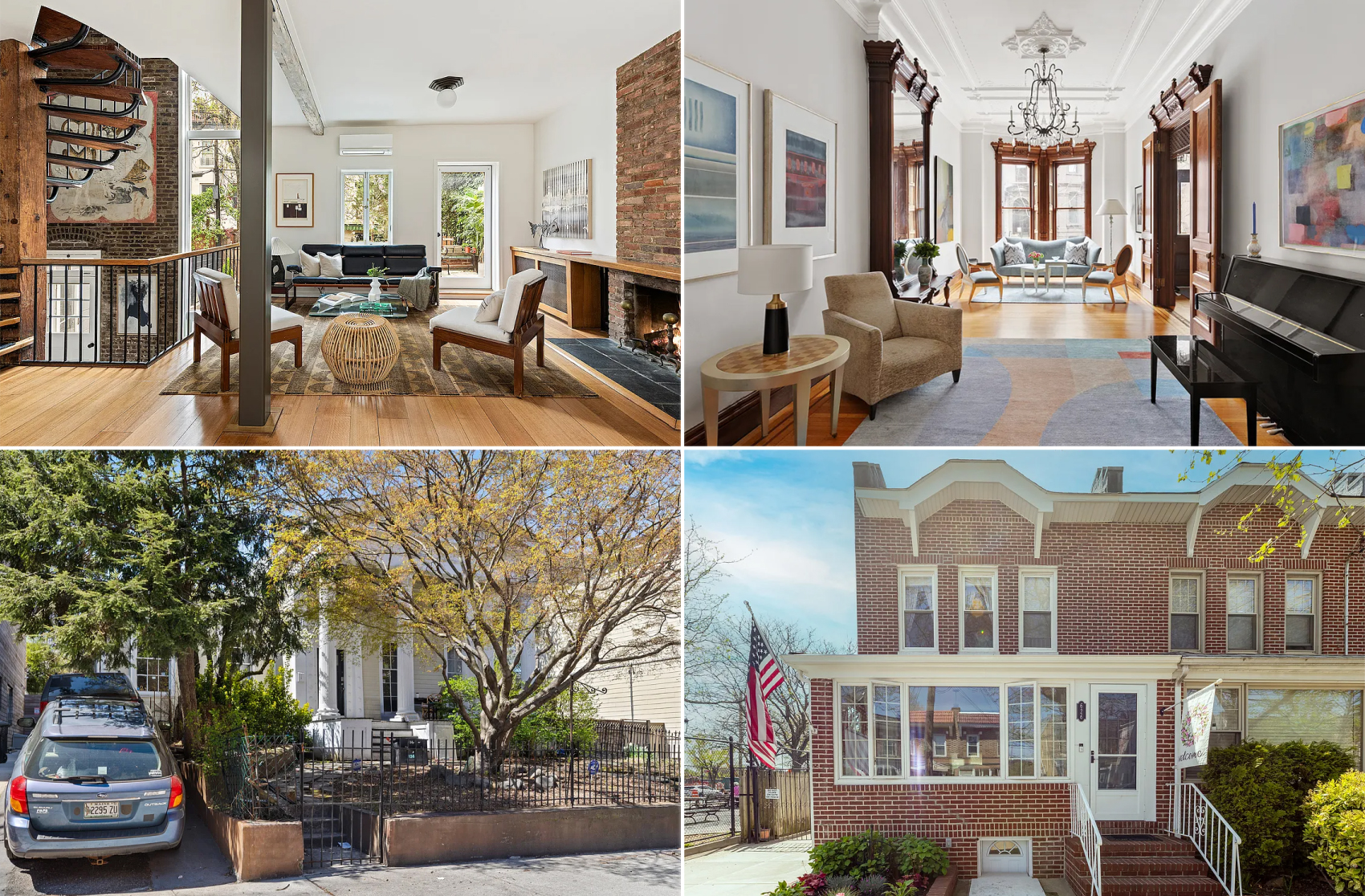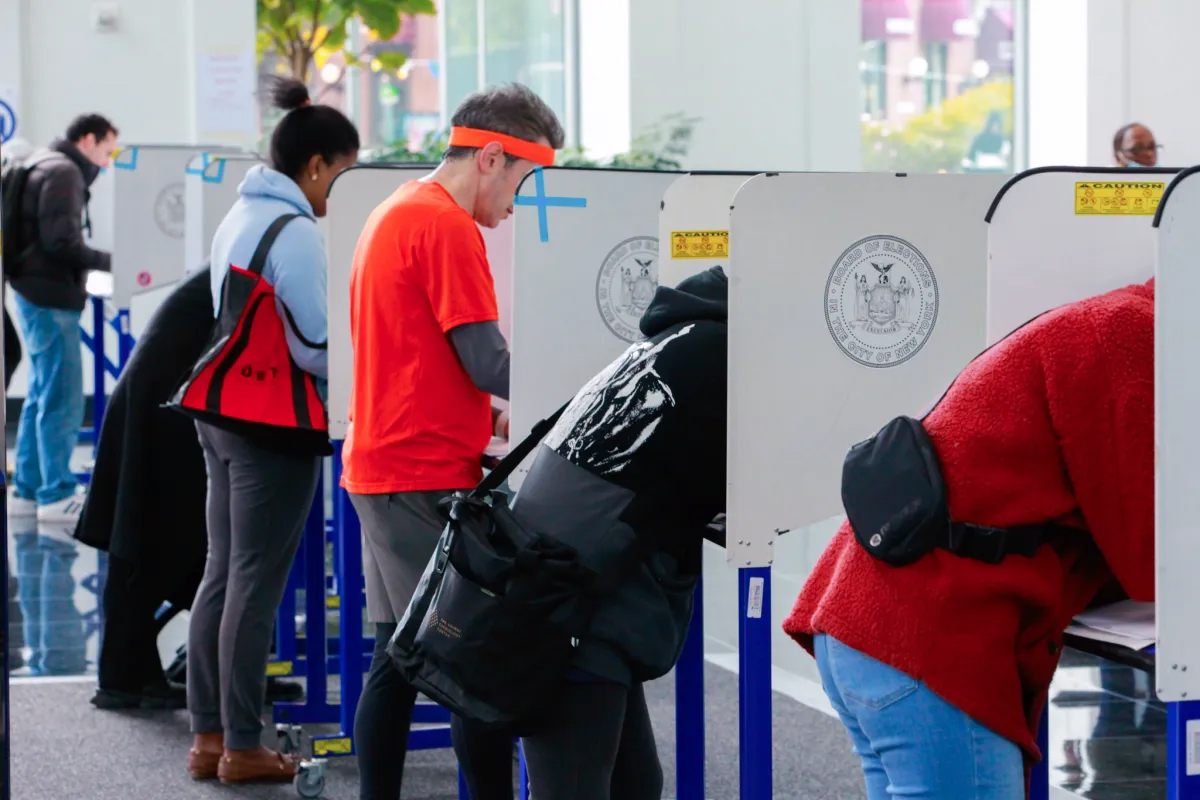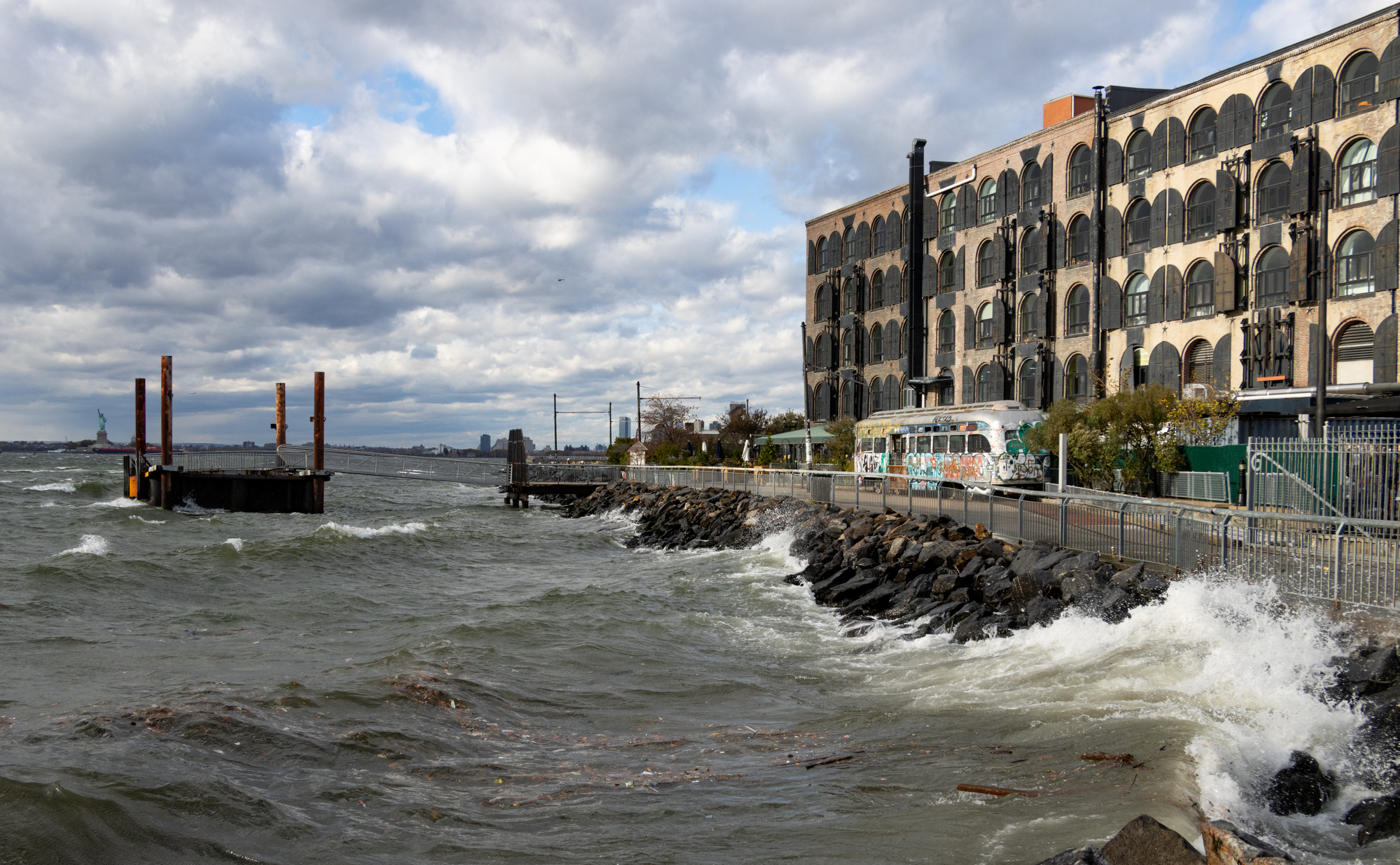On Flatbush, a $3 Billion Pipeline of Projects
There is more than $3.1 billion of construction projects in the pipeline for the one mile stretch of Flatbush Avenue between the Manhattan Bridge and the Williamsburgh Bank building, calculates The New York Post this morning. Here’s how it breaks down: In addition, there’s another $1 billion in projects off the northern end of Flatbush…


There is more than $3.1 billion of construction projects in the pipeline for the one mile stretch of Flatbush Avenue between the Manhattan Bridge and the Williamsburgh Bank building, calculates The New York Post this morning. Here’s how it breaks down: 
In addition, there’s another $1 billion in projects off the northern end of Flatbush and, of course, a $4 billion project some of you may have heard of called Atlantic Yards. “Flatbush Avenue is the borough’s quintessential boulevard and the gateway into Brooklyn,” said Joseph Chan, president of the Downtown Brooklyn Partnership. “It is to Brooklyn what Broadway is to Manhattan, and it is poised for some dramatic change.”
Boom on Flatbush [NY Post] GMAP





The racism coming from the Black posters here is astounding. No one is being displaced and no minority neighborhoods are affected.
People, can we review the numbers again? 18 separate developments with 4,422 new residential units within a 1/2 mile stretch. I’m all for developing the downtown area, which has long been overlooked as the orphaned child of the surrounding brownstone areas, but trying to force 10 pounds of shit into a 5 pound bag at this rate of speed alarms to me. Again, I ask the question, can this area, which most everyone acknowledges was pretty desolate, handle this sudden influx of people without putting a substantial drain on the infrastructure?
I guess you love Bloomberg – because he is doing virtually everything you are requesting. Property sale taxes, mortgage recording and unit property taxes are one of the biggest generators of revenues in the city, which it is then up to the city to use for Mass transit, infrastructure, police etc…. Not to mention that developers must pay all sorts of fees, taxes and other costs to the city coffers – and Bloomberg has proposed cutting the 421-a exemption to make those new property owners start paying taxes right away or put up affordable housing on-site.
Additionally Bloomberg has dedicated 7.5B to build or preserve 165,000 units of affordable housing within the city – of course that money comes from the aforementioned taxes (and the approx 2-3% income tax NYC has on its residents – including the wealthy ones).
As for the subway/transit issue, Bloomberg has proposed a massive increase in funding – payable by those people who choose to drive into Manhattan from 6am-6pm M-F. Lets see how many of the “Develop Dont Destroy” folks support him on that.
Finally, I dont want to get into another AY debate, but overcrowded or not, it is still better to put development over a railhub then not. It is far easier to alleviate ‘congestion’ by upgrading and improving the current mass transit system then in is spreading people all over the place and trying to either add completley new service or have to upgrade a wider area of the system (economies of scale)
David- I will be the first to admit I am not expert enough in law to begin to be able to answer that question. But I think part of my answer would include not so much rewriting laws as coming down on those who ignore or circumvent the ones that are there to keep some protections in place. Maybe one thing i would love to see would be a requirement that developers must contribute to the infrastructure of the nieighborhood- and by that I mean the streets, the trees, con ed, etc. Big developments would have to pay for upgrading subway stations, police precincts and firehouses. I would also cut out any subsidies for luxury housing in poor or lower income neighborhoods and only instate them if the housing is being built for lower-mid income levels,giving neighborhood residents a shot at newer housing without displacing the community. I’d offer better and bigger incentives to business to build in these neighborhoods- make no mistake. Business can do well in poorer neighborhoods- Fulton St. in downtown Brooklyn does, and business districts should be upgraded for the people who already live here, instead of with an eye toward getting luxury housing.
There is a lot of money- if it has to be put in those terms, in minority neighborhoods. there is a huge working class and they support neighborhood business. their buying power has been very underestimated.
Well, I’m sure to be raked over the coals here but the NY times has a very interesting article on the subway system if anyone cares to read it. the study says that the system is already carrying, in some cases, more than it can handle, and cannot add more trains to the system. I know you have always said the trains were one major reason for putting a huge project like AY there- but this kind of argues against that.
Still and all, the reason people want to have a handle on what is happening have a valid point,especially as all the secret deals come to light and all the special favors. You can’t fight what you don’t know.
Bx2Brkly – no my question is directed to the people who claim they want a “handle on how it is happening”.
You cant complain that it is an “exercise in futility” until you actually have a SOLUTION and then if it is ignored or unimplemented despite wide support you have a complaint. It requires ZERO money or power to post a policy here on Brownstoner. Yet all we hear is, this wrong, this is evil, stop this, NY is being ruined on and on and on. (which is why it sems as though the agenda is simply anti-everything)
So I pose the question again, imagine you were king, what law/zoning/taxes/incentives would you change, implement or repeal to alleviate the problems you are articulating, and in doing so you have to consider possible unintended consequences.
AMEN David!
I agree with Hal too, especially when he wondered who would be the first to use the name “dick.” Now we know- some fool who was too dense to get Hal’s sarcasm.
David- I think the point really is that people are not “anti-development, anti-Bloomberg, anti-everything “- they want a handle on how it is happening, and they want it to happen in more constructive ways.And your question is being directed for the most part at those on the receiving end developer greed. At the same time, as everyone acknowledges, this group also happens to most likely be those without access tothe same money and/or power as the group that wants to build everywhere. It’s almost an exercise in futility since the parameters for each group are totally different- one based on money and entitlement, and the other based on home and community. And the solutions or compromises offered will always be derided by the development/money people because that’s all they are interested in. When was the last developer you met concerned about the impact of his building on the neighborhood- or even if it would impact the community?
Ignoring the fact that 95% of the developments listed above are displacing no one, and ignoring the fact that by adding massive supply of luxury housing here will by definition reduce the market for such developments elsewhere (in more middle class brooklyn) and ignoring the fact that displacing check cashing places (usurious fees), kennedy fried chicken (so unhealthy it should be regulated) and horribly sub-par grocery stores and bodegas (well documented that they overcharge the poor and offer least healty food selections and little fresh produce) is probably the best thing you can do for the urban poor – Could someone please tell me how people are being displaced by development in Downtown Brooklyn? – Virtually all housing in the area is either rent stabilized, NYCHA or owner occupied. In either case the costs for the occupants rise or fall entirely independent of other development.
And I am forced to ask the same question I asked last week – since none of the anti-development, anti-Bloomberg, anti-everything people has yet answered it. Okay lets assume you are correct, what tax/zoning/law would you change to improve the situation without causing worse unintentional consequences.
Its funny to me how people post here with such clarity as though things are so black and white – yet when asked for solutions – all we hear is silence.
I agree with Hal that people should use handles to identify their comment patterns. That way we’d know who people are. For example, everytime I see a post by Brower Park or bx2bklyn, I simply skip over it because I know that it’s sure to be drivel.